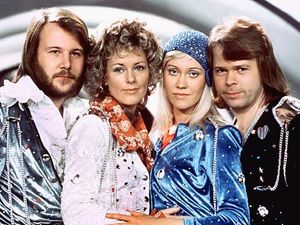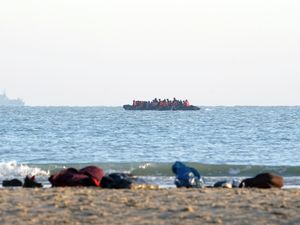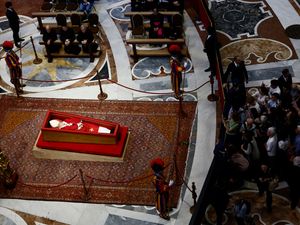Peter Rhodes on Abba's lyrics, a lesson in grammar and the perils of pallbearing
No surprises in the viewing figure for the Duke of Edinburgh's funeral. It peaked at more than 13 million viewers, more than watched the Oprah interview with Harry and Meghan. This may seem remarkable, given the record number of complaints about wall-to-wall coverage when the Duke's death was announced.

But the funeral was broadcast live and there will always be a fascination with live telly that no amount of scissors-and-paste “tributes” can achieve, as hours of predictable, pre-recorded recollections swept over a half-interested nation.
In contrast, two minutes anxiously praying that the pallbearers would not stumble at Windsor was simply transfixing.
Things can go wrong, even at the most rehearsed of state events.
In January 2015, half a century after Winston Churchill's funeral, some of his pallbearers admitted to the BBC they they came perilously close to dropping the heavy, lead-lined coffin on the steps of St Paul's Cathedral.
One of the eight soldiers suffered crushed vertebrae and a curved spine but braced up and carried on heroically. The sight of a coffin being carried up a flight of steps to a raised entrance, as at St Paul's or Windsor Castle, is imposing and impressive. But would anyone object if the pallbearers entered by a door at ground level?
Did Britain tactically vote against Abba's hit, Waterloo, in order to improve the chances of the UK's Eurovision Song Contest entry back in 1974? o it is alleged by Bjorn Alvaeus of Abba. He may be right.
On the other hand, it may be that the British judges objected to their language being mashed by Swedes. Prepare to wince at the opening lines: “My, my / At Waterloo, Napoleon did surrender / Oh yeah / And I have met my destiny in quite a similar way.”
The tune was okay but the words were rubbish and richly deserved nul points which, incidentally, was also the score awarded to Waterloo by the Italians. In quite a similar way.
The split infinitive strikes again. I wrote a few days ago that a medical column “advises us to socially distance". Some purists believe that any verb, such as “to distance” should never be divided, as if the “to” is an integral part of the word.
If you follow this rule, I should either have used the phrase “advises us to distance socially” or “advises us socially to distance,” neither of which makes much sense. But help is at hand.
When the rules of grammar seem daft, turn to George Orwell's six rules for writing. His last rule, and by far the most important, is: “ Break any of these rules sooner than say anything outright barbarous.”
To avoid barbarity, I am gladly splitting my infinitive and advising you to socially distance.
I referred recently to young people who think old people don't understand computers.
A reader agrees: “I do question this attitude that “older people” are confused by technology. Who do people think invented these things?”





